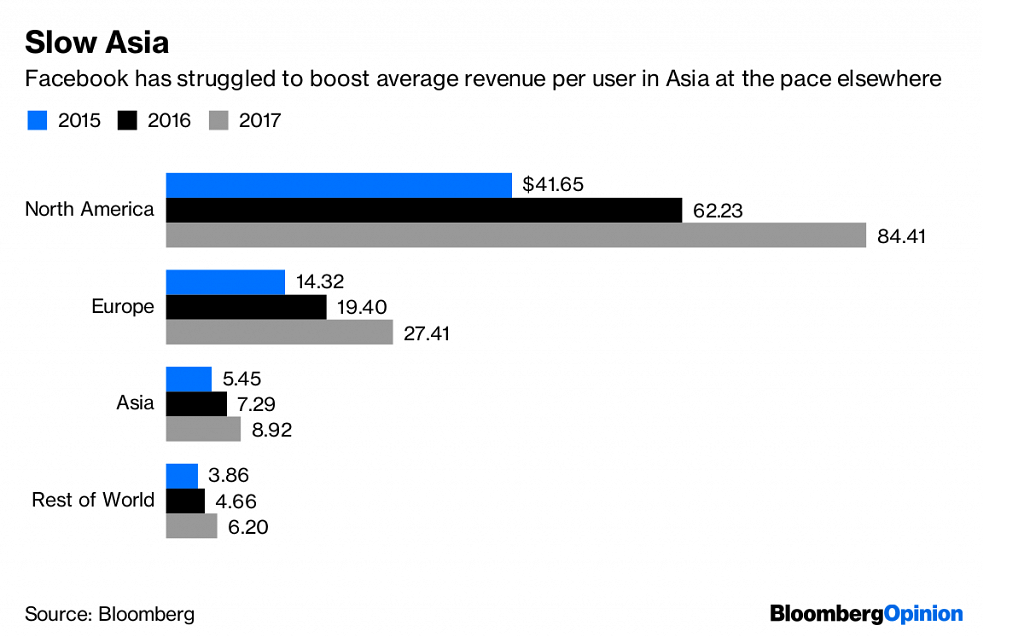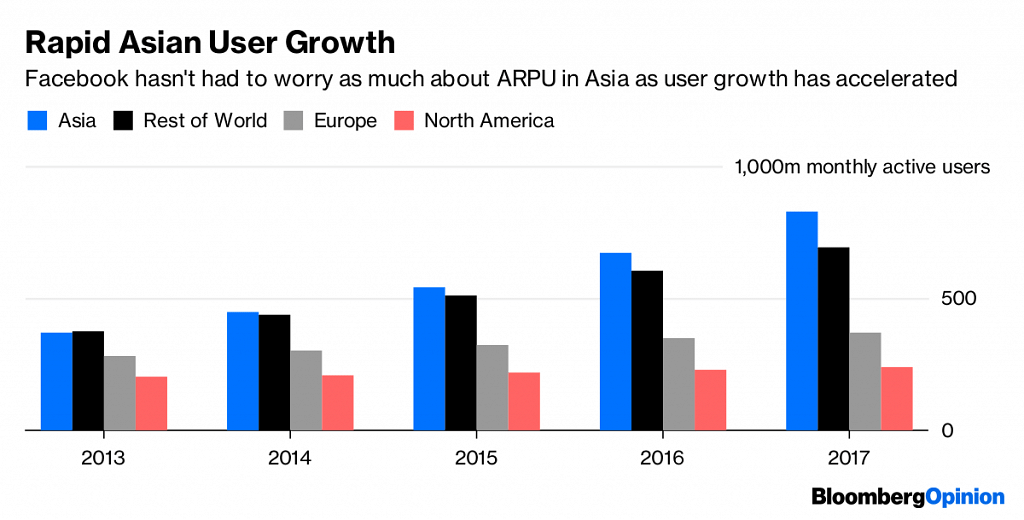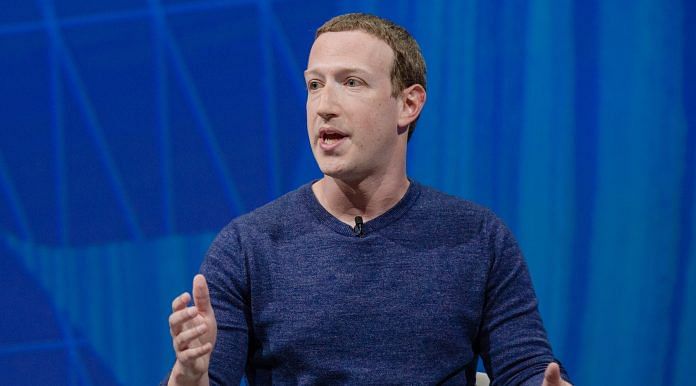To boost its revenue, Facebook is experimenting with buying the broadcast rights of major sports like cricket and football.
When Facebook Inc. looks for ways to lift its advertising revenue, it probably doesn’t bother too much with trying to steal business from its fellow tech giants Google and Amazon.com Inc. Mark Zuckerberg and his fellow executives are far more likely to look at the nearest TV set.
Global spending on television ads is still more than three times as high as the outlay on mobile ads, which represent most of Facebook’s business, according to marketing intelligence specialist WARC. And big ticket events still bring in the most ad dollars. Among the most lucrative, as I’ve written before, is live sport.
That’s why it makes sense for Facebook to buy the rights to broadcast every soccer game from Spain’s La Liga for three seasons in Asian countries including India, Pakistan and Sri Lanka, as Bloomberg News reported Tuesday. While Facebook’s revenue from the region has more than doubled since 2015, its average revenue per user remains a lot lower there than in Europe or North America.

Facebook has bagged the games for a knockdown price too: Less than $20 million, according to Bloomberg News’s David Hellier. Sony Pictures Networks India, which broadcast the games previously, paid $32 million. But that’s not to say there’s no audience for this stuff. A 2016 “El Clasico” match between Barcelona and Real Madrid attracted four million viewers in India, according to Sony.
Still, it’s a tentative step by the social media behemoth into the fiercely competitive world of sports TV rights. Earlier efforts have been similarly restrained. It agreed to pay at least $30 million earlier this year for rights to 25 Major League Baseball games, adding to 22 Major League Soccer games it has broadcast in the U.S. since March.

But it lost out to Rupert Murdoch’s 21st Century Fox Inc. last year in a streaming rights auction for Indian cricket matches, despite offering $600 million. A mooted participation in the multi-billion pound bidding for English Premier League football rights came to nothing. Zuckerberg is yet to secure exclusive rights to a domestic sports league.
The owners of prime sports franchises like the Premier League have been hoping that the deep-pocketed tech giants will soon start trying to snap up TV rights, to help maintain the dizzying price inflation of recent years. But, just like Amazon’s very limited entry into English soccer, everybody is treading carefully as they try to work out whether their approach can sustain the high costs.
While Facebook looks covetously at the ad revenue that big sports broadcasters like NBC and the Murdochs can bring in, it doesn’t even run an ad break in its live sports coverage yet. Instead, it’s using these cheap early experiments to see what kind of audience it might attract.
And Zuckerberg doesn’t have the advantage of Amazon, which at least charges a monthly subscription fee for its Prime video service. How easy would it be to secure a profitable return on a major sports rights investment if it can only cover the cost through advertising?
Still, with WARC predicting a more than 30 percent jump in online video ad spending, you can see why Facebook is experimenting – especially in a region where its revenue per user is so weak. Perhaps it deserves some credit too for not getting suckered into the soccer rights bubble right from the kick off. –Bloomberg




Nick Poulantzas pointed out that the problem was in the production of knowledge.
I do not think that technology is distinct from science; They are two faces of the same thing. It is important to keep I’m mind that technology is not simply the machine or gadget, it is the policy for the use of the technology which includes facilities, vehicles, communication devices, weapons, etc. The policies which are approved are part of the technology – technology is policy!